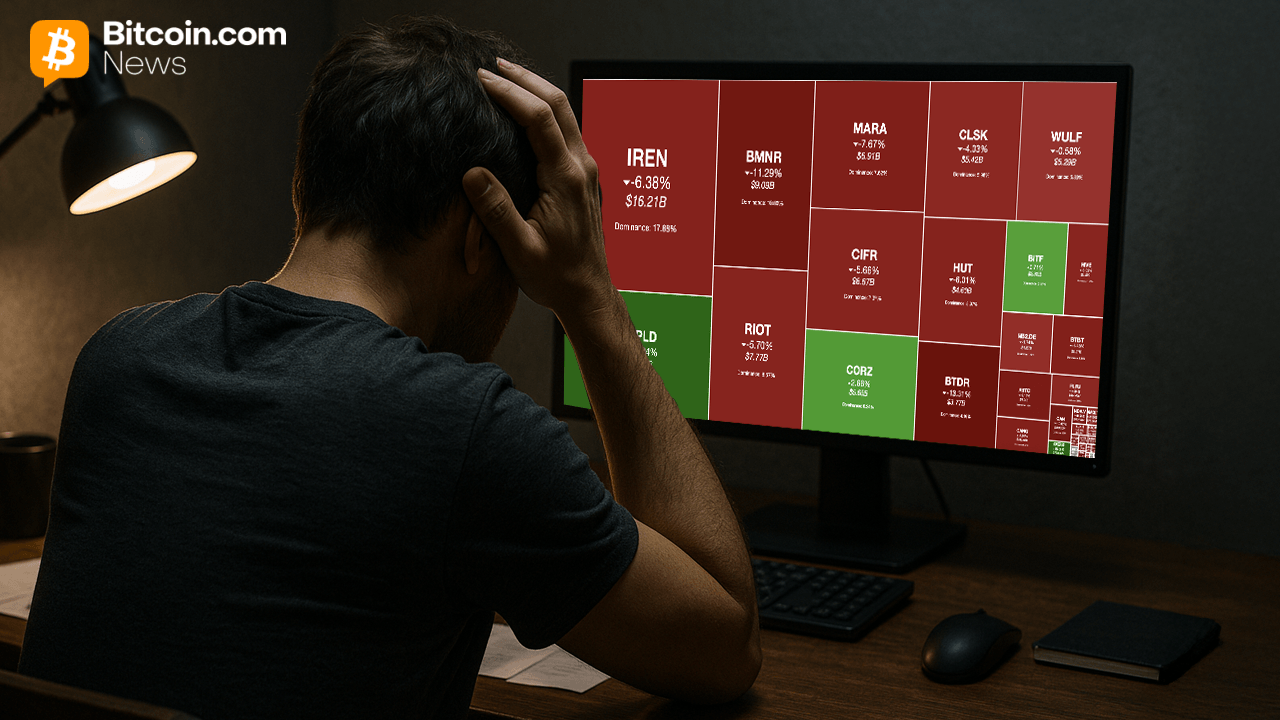Bitcoin Mining Stocks Plunge as $1.65 Trillion Is Wiped From
How Bitcoin Helps You Value Time and Money
(Originally posted on : Crypto News – iGaming.org )
Let’s talk about something you probably haven’t put together before—Bitcoin and time. At first glance, they might seem unrelated, but once you take a closer look, it’s clear they’re closely tied. From how Bitcoin is built to how it impacts your decisions, time plays a big role.
What’s a Time Chain Anyway?
Back when Satoshi Nakamoto introduced Bitcoin, he originally called it the “Time Chain,” not the blockchain. Although the term changed later, the idea stuck. Every block added to Bitcoin’s network acts like a timestamp, marking a moment in history. A new block shows up roughly every 10 minutes, creating a trackable, global timeline. It all started with the Genesis block on January 3, 2009, and hasn’t stopped ticking since.
How Bitcoin Affects Your Time Preference
There’s also a personal side to this. Ever heard of time preference? It’s about whether you value spending money now or saving it for later. Bitcoin often nudges people toward saving. Why? Because unlike fiat currencies, which often lose purchasing power due to inflation, Bitcoin tends to increase in value over time. That makes holding onto it feel more rewarding than spending it right away.
A Clock That Doesn’t Care Where You Are
Now imagine being on Mars. Earth days and Mars days don’t line up. So, how would we stay in sync? Bitcoin doesn’t care if you’re on Earth, Mars, or anywhere else. Its steady 10-minute block interval works like a universal clock, offering a consistent measure of time no matter your location.
Scarcity of Time and Bitcoin
There are only a couple of things you can’t get more of—your time and Bitcoin. Your lifespan is fixed, and Bitcoin’s total supply is capped at 21 million. No matter how many miners join the network or how much power they throw at it, the system adjusts. New blocks still show up every 10 minutes on average. That built-in scarcity stands in contrast to fiat currencies, which can be printed in unlimited amounts.
New players only. Exclusive Welcome Bonus of up to $2,500
Why This Matters
When you work, you’re giving up your time in exchange for money. But if that money keeps losing value, it feels like you’re trading something scarce for something that’s not. Over time, inflation can chip away at your savings. In fact, if inflation stays around current levels, your money could lose half its value in less than 15 years.
Bitcoin Doesn’t Play That Game
Bitcoin has a known schedule. It’s not random, and it doesn’t change on a whim. On April 20th at 00:09 UTC, Bitcoin’s latest halving cut the block reward to 3.125 BTC. That predictable structure helps build trust. Compare that to fiat money, where central banks can shift policies at any time, and it’s easy to see why people are drawn to Bitcoin.
The Bigger Picture
So what does this all come down to? It’s about how you value your time and the money you earn. Are you valuing them properly? Bitcoin gives you an option that treats both with respect. Its fixed supply and decentralized setup offer a way to store value that inflation can’t easily erode.







 Bitcoin
Bitcoin  Ethereum
Ethereum  Tether
Tether  XRP
XRP  Solana
Solana  USDC
USDC  Lido Staked Ether
Lido Staked Ether  TRON
TRON  Dogecoin
Dogecoin  Cardano
Cardano  Wrapped stETH
Wrapped stETH  Wrapped Bitcoin
Wrapped Bitcoin  Figure Heloc
Figure Heloc  Ethena USDe
Ethena USDe  Chainlink
Chainlink  Stellar
Stellar  Wrapped eETH
Wrapped eETH  Hyperliquid
Hyperliquid  Bitcoin Cash
Bitcoin Cash  Sui
Sui  Avalanche
Avalanche  LEO Token
LEO Token  WETH
WETH  Binance Bridged USDT (BNB Smart Chain)
Binance Bridged USDT (BNB Smart Chain)  USDS
USDS  Coinbase Wrapped BTC
Coinbase Wrapped BTC  USDT0
USDT0  Litecoin
Litecoin  Hedera
Hedera  WhiteBIT Coin
WhiteBIT Coin  Ethena Staked USDe
Ethena Staked USDe  Shiba Inu
Shiba Inu  Monero
Monero  Cronos
Cronos  Toncoin
Toncoin  Mantle
Mantle  Dai
Dai  Zcash
Zcash  Polkadot
Polkadot  MemeCore
MemeCore  OKB
OKB  Aave
Aave  Uniswap
Uniswap  World Liberty Financial
World Liberty Financial  Bitget Token
Bitget Token  BlackRock USD Institutional Digital Liquidity Fund
BlackRock USD Institutional Digital Liquidity Fund  Pepe
Pepe  NEAR Protocol
NEAR Protocol  Bittensor
Bittensor  USD1
USD1  Jito Staked SOL
Jito Staked SOL  Ethena
Ethena  Currency One USD
Currency One USD  PayPal USD
PayPal USD  Aptos
Aptos  Ethereum Classic
Ethereum Classic  Ondo
Ondo  sUSDS
sUSDS  Binance-Peg WETH
Binance-Peg WETH  Jupiter Perpetuals Liquidity Provider Token
Jupiter Perpetuals Liquidity Provider Token  Binance Staked SOL
Binance Staked SOL  Aster
Aster  Worldcoin
Worldcoin  HTX DAO
HTX DAO  POL (ex-MATIC)
POL (ex-MATIC)  Gate
Gate  KuCoin
KuCoin  USDtb
USDtb  BFUSD
BFUSD  Rocket Pool ETH
Rocket Pool ETH  Story
Story  Internet Computer
Internet Computer  Pi Network
Pi Network  Arbitrum
Arbitrum  Algorand
Algorand  Tether Gold
Tether Gold  Falcon USD
Falcon USD  Wrapped BNB
Wrapped BNB  Cosmos Hub
Cosmos Hub  ChainOpera AI
ChainOpera AI  VeChain
VeChain  Kinetiq Staked HYPE
Kinetiq Staked HYPE  StakeWise Staked ETH
StakeWise Staked ETH  Sky
Sky  Lombard Staked BTC
Lombard Staked BTC  Liquid Staked ETH
Liquid Staked ETH  Pudgy Penguins
Pudgy Penguins  Pump.fun
Pump.fun  Sei
Sei  PAX Gold
PAX Gold  Render
Render  Renzo Restaked ETH
Renzo Restaked ETH  NEXO
NEXO  Official Trump
Official Trump